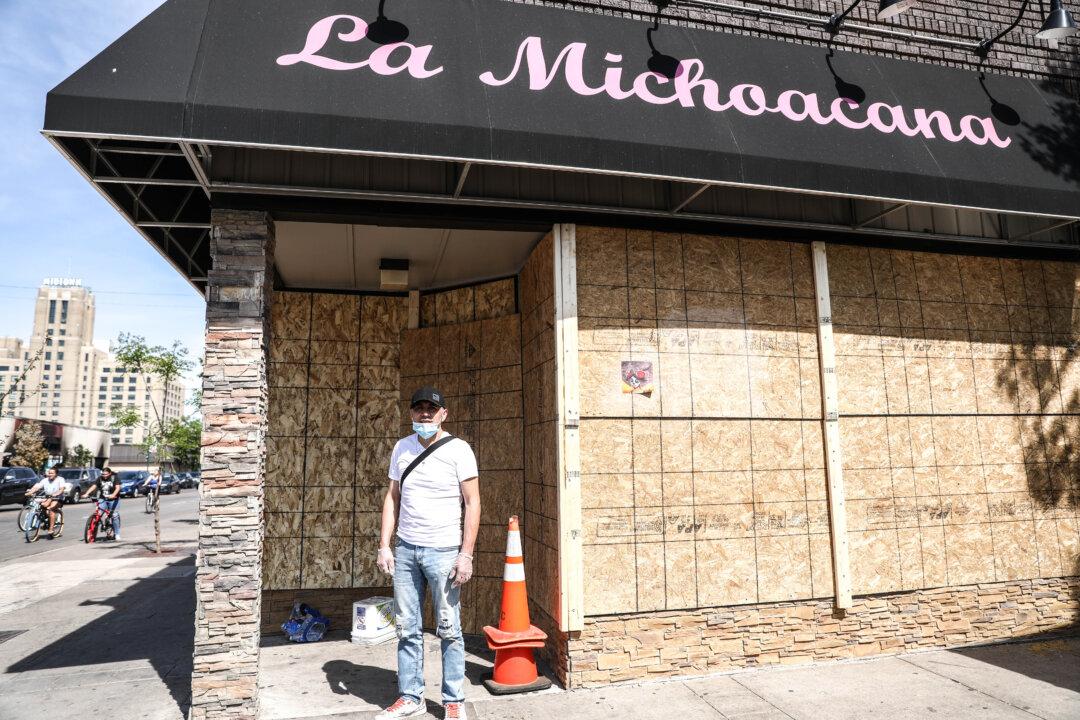MINNEAPOLIS—Single-handedly, Ricardo Espin possibly saved a building containing four businesses from being smashed and burned in the heart of the Minneapolis riots.
Armed only with ample courage, Espin stood outside his ice cream shop on East Lake Street and Park Avenue for three nights, pleading with rioters to not damage his shop. Situated about a 15-minute walk from the Minneapolis Police Department’s 5th Precinct, Espin said he warded off several groups of 5 to 10 young vandals each night, usually around 2 a.m.





